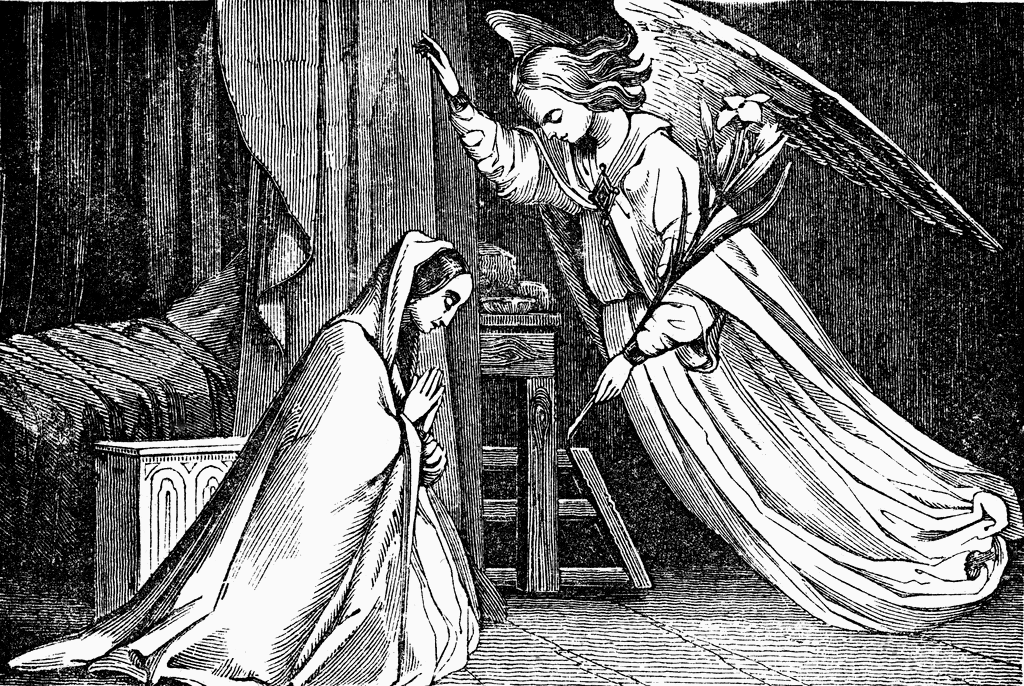Guds rika välsignelse till er alla, systrar och bröder i Kristus.
Today we read from Luke 1:26-38, about Mary´s meeting with the angel when he tells her she will become a mother, the mother of Jesus, God´s own son. Much can be said about how she willingly accepts this task and how we should trust God to guide is in our life choices, but that is old news to most of us. True for sure, but very in line with tradition.
There are some annoying things to this story if you pick it apart. Traditionally it is a very sweet story accompanied by “ooh”s and “aah”s and points made about how holy Mary was with a servant´s heart, which is true. But. To start with it tells us that Jesus is, sort of, born out of wedlock. Conceived at least. We could try to spiritualize it and say God is sometimes described as the groom for all mankind, but to be honest, it is a bit of a stretch.
Secondly, a woman is the first to hear of Jesus and his coming birth. Not a man, but a woman who is not seen as a reliable witness these days. A young woman, unmarried and all, is trusted to carry our Lord and saviour.
Thirdly, she is put in an awkward position. She is pregnant, but not married. Something that is, probably not that uncommon, but still very much frowned upon in those times, through the history of western culture and in our times as well in certain places and communities.
Basically God seems to be quite an arrogant and thoughtless suitor, if you look at it from Mary´s point of view. Luckily this Joseph steps up to the plate, though with a bit of a nudge from God, and takes care of Mary and her boychild, Jesus, and thus the situation is solved.
So being anyone else than the mother of Jesus, this Mary would have been frowned upon by almost everyone through history, especially religious people. Now, I know, we are not “religious”, we are believers, and therefore supposed to know better, but what does that cliche even mean? Am I somewhat better because I am not “religious” and because of that immune to religious bigotry?
To me, this story speaks volumes about how God does not care for our rules, cultures and traditions. It speaks about how He uses the most vulnerable among us, a young woman in a very masculine world. It tells me that when we come to him with our laws, pointing our fingers, He throws our laws at our feet and points at the human standing right in front of us, whispering: “Ecce homo,” “see the human”. “Look at her. Look at him. Can you really see that human as I do?”
I am NOT saying that God´s law does not carry any meaning or relevance. I am saying that to each and everyone of us, God´s laws are first and foremost meant for me, for myself. That is where it has relevance for my life, how I live my life is my first concern, not how others live theirs.
So in these times of pandemic, hoarding, uncertainty and anxiety. Let us follow God´s lead, look at the people around us and really see them. See the potential in them.See what they need, pray for each other and in this time of social distancing, build communities. Wondrous things are happening in the midst of crisis, people playing and singing together from their balconies, applauding the health carers that are risking their lives for others, neighbours shopping for the elderly. This world God created is a troubling but very often also a truly wondrous place. We just need to see it.
God bless you.
Isak – West Coast chapter, Finland
